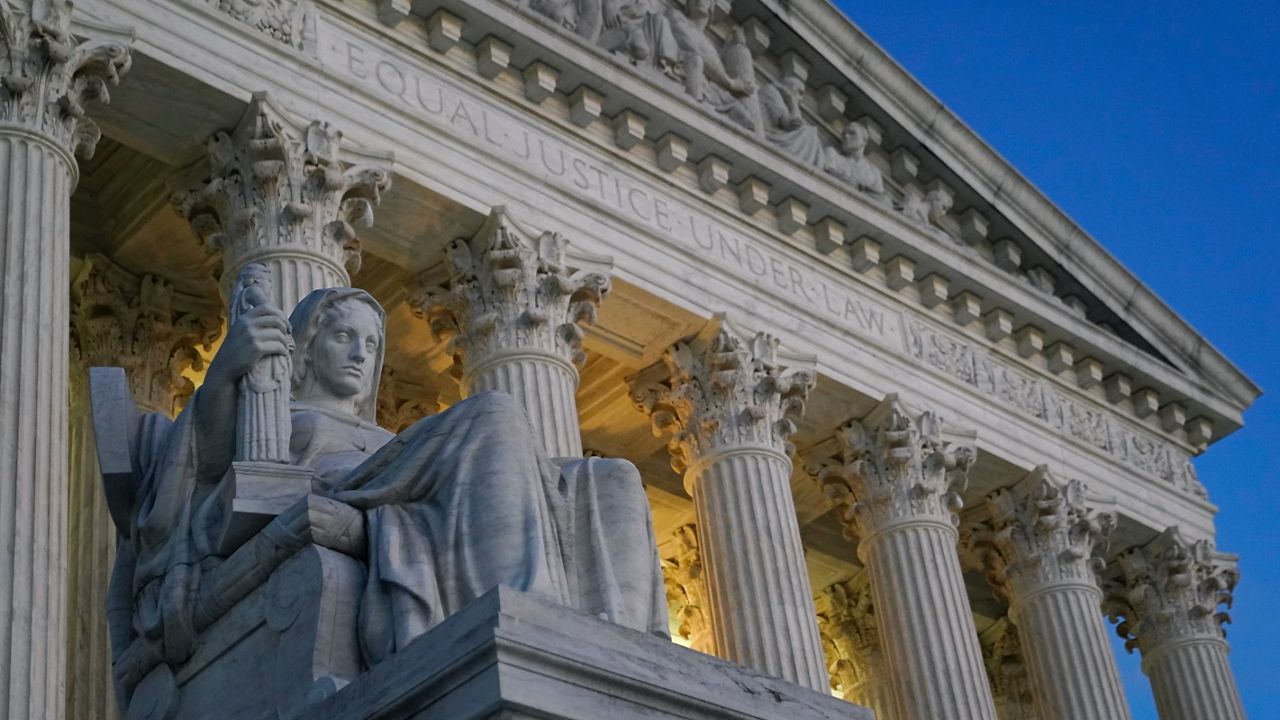One day after Missouri executed prisoner Kevin Johnson, a man convicted of killing a St. Louis-area police officer in 2005, Supreme Court Justice Ketanji Brown Jackson, joined by Justice Sonia Sotomayor, issued a dissenting opinion explaining why she would have granted a stay of his execution.
The dissent was Jackson's second published opinion since joining the high court in June.
Missouri, Jackson wrote, did not comply with its own due process requirements when reviewing the validity of Johnson’s conviction.
“In short, a state cannot provide a process for post-conviction review and then arbitrarily refuse to follow the prescribed procedures. But that appears to be what happened in this case,” Jackson wrote. As such, she believes Johnson was likely to succeed in arguing a violation to his Fourteenth Amendment rights to equal protection under the law.
Much of the evidence that could have been presented at a potential hearing appeared to be “new evidence relating to the trial prosecutor’s racially biased practices and racially insensitive remarks,” Jackson wrote. “And now that evidence will not be considered on the merits by any court, much less the one that was supposed to base its conclusions about the validity of Johnson’s conviction on all such evidence, per the statutory mandate.”
Johnson, 37, admitted to killing Kirkwood Police Sgt. William McEntee in 2005, when Johnson was 19 years old, in an act of what he then believed was revenge.
McEntee was among the officers sent to Johnson’s home on July 5, 2005, to serve a warrant for his arrest. Johnson was on probation for assaulting his girlfriend, and police believed he had violated probation.
Johnson saw officers arrive and awoke his 12-year-old brother, Joseph “Bam Bam” Long, who ran to a house next door. Once there, Long, who suffered from a congenital heart defect, collapsed and began having a seizure.
Johnson testified at trial that McEntee kept his mother from entering the house to aid his brother, who died a short time later at a hospital.
That evening, when McEntee returned to the neighborhood to check on unrelated reports of fireworks being shot off, Johnson shot him multiple times through the open passenger-side window. Johnson then got into the car and took McEntee’s gun.
The court filing said Johnson walked down the street and told his mother that McEntee “let my brother die” and “needs to see what it feels like to die.” Though she told him, “That’s not true,”
Johnson returned to the shooting scene and found McEntee alive, on his knees near the patrol car. Johnson shot McEntee in the back and in the head, killing him.
Johnson’s first trial ended in a hung jury, unable to agree to charges of first-degree murder. A second trial ended in a jury convicting him of first-degree murder. That jury later sentenced him to death.
Throughout the trials and sentencing process, Johnson’s attorneys argued that he was emotionally distressed, acting without thinking, a child from an unstable home with a history of trauma. They also called attention to his age, 19 years old at the time of the crime. Later, during the appeals process, they argued that Johnson was sentenced to death due to racial bias.
In October, a special prosecutor was appointed to review the case, later filing a motion to vacate the death sentence — they stated that race played a “decisive factor” in sentencing.
A St. Louis circuit court judge declined to vacate the sentence, and appeals to the Missouri Supreme Court and U.S. Supreme Court were unsuccessful. Jackson and Sotomayor were the lone dissenters in the court’s 7-2 vote to deny the stay of execution.
Jackson died Tuesday after an injection of pentobarbital at the state prison in Bonne Terre. It was the state’s second execution this year and the 17th nationally. Two more executions are scheduled in Missouri for the first few weeks of 2023.



